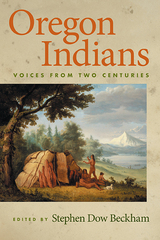
This is a major book about one of the luminaries of the golden age of Spanish literature. In spite of his great reputation, Lope de Vega is to most of us merely a name, in part because of the prodigious quantity and variety of his plays and other writings in verse and prose. Alan Trueblood's book does not pretend to survey all of Lope's works or to touch on all the events of his colorful career; yet it probes the mind and heart, and art, of Lope as no other study in English has done.
Trueblood pursues the artistic consequences of a key experience in Lope's life, the four-year love affair with Elena Osorio that terminated violently in 1587. (The rejected Lope, age twenty-five, wrote slanderous verses about Elena's family and associates, was jailed on charges of libel, and was sentenced to ten years' exile.) Notwithstanding his subsequent marriages and liaisons, his mounting literary fame in Spain and abroad, and his eventual dedication to the Church as a priest, for forty-five years this experience reverberated intermittently in his writings, culminating in the great prose dialogue La Dorotea. Trueblood's demonstration of the increasing objectivity and sympathy with which Lope treats Elena/ Dorotea--in ballads, in sonnets, in plays, in La Dorotea--is psychologically as well as aesthetically revealing.
Trueblood provides by far the fullest analysis and elucidation of Lope's masterpiece, La Dorotea, that it has ever received--and in the process he probes the nature of literary creativity, the symbiosis between personal experience and artistic expression, in contexts going well beyond Lope and his age. Because the book will appeal to many readers who do not know Spanish, all quotations have been translated into English.

One of the hallmarks of the classical Spanish theater is a vengeful conception of personal honor. This view, to some extent characteristic of Spanish life and thinking of the time, finds its fullest expression in those dramas called “honor plays.” In this study Donald R. Larson analyzes the honor plays of Lope de Vega, stellar playwright of Spain's Golden Age, and demonstrates in the course of them a consistent line of dramatic development.
Representative works have been selected from each of the three categories into which Lope's plays are customarily grouped—the early plays, those of the middle period, and the late plays. Larson's approach to the comedias is both critical and historical; it allows him to chart the evolution of the group as a whole, while providing significant new insights into the individual works. In the words of Bruce W. Wardropper, he gives us “a rare opportunity to follow one of the multiple threads through the Lopean labyrinth.”
As Lope is one of the giants of European literature and ought to be of interest to all students of the drama, the book contains complete English translations of passages quoted in the original Spanish.
READERS
Browse our collection.
PUBLISHERS
See BiblioVault's publisher services.
STUDENT SERVICES
Files for college accessibility offices.
UChicago Accessibility Resources
home | accessibility | search | about | contact us
BiblioVault ® 2001 - 2024
The University of Chicago Press









